The Dropouts
by Rachel Anne Warren
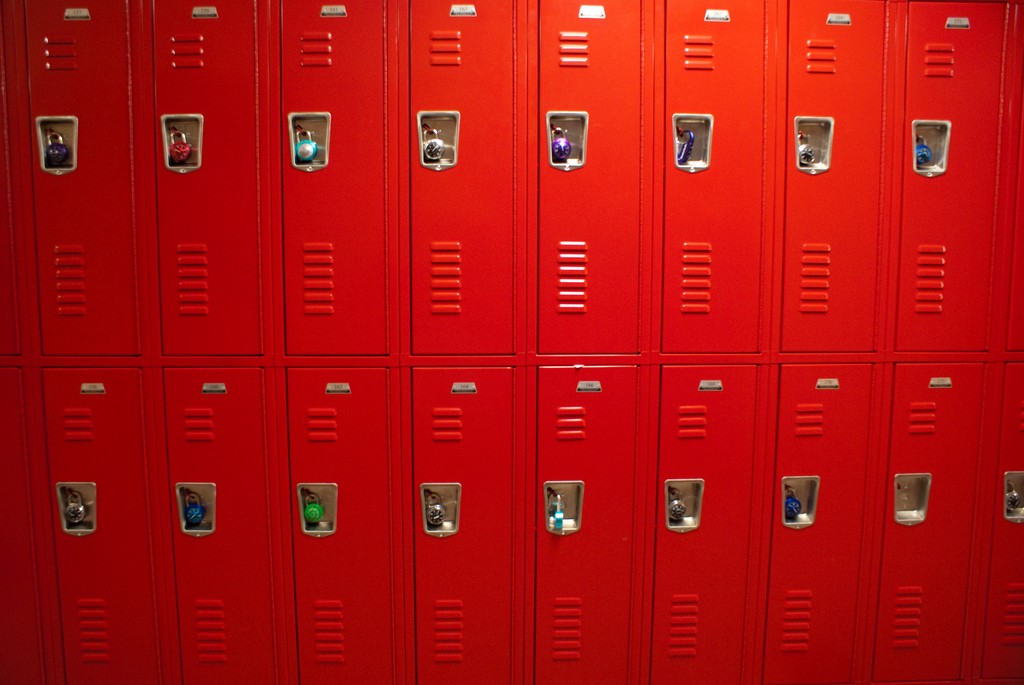
When I was 19 years old, I dropped out of college and ran away to join a circus. Up until that point, I’d been over-booking my courses, waiting tables half the week, making costumes for shows, and performing to make money. Eventually, I hit a wall — creatively and literally.
See, I actually fell into the wall, instead of my bed, one night, which resulted in a concussion. “Exhaustion and malnourishment,” the ER doc said, whilst little blue birds swam in drunken circles around his head. I wasn’t happy.
I had been going to school for music, and I was already getting some work in the field when the following thing occurred to me: some people would get a degree and never get a gig. Some people would never finish, or even go to college in the first place, and we would all have the same odds in a way.
Secretly, I felt really ashamed about leaving school. Dropouts are socially frowned upon, and we tend to look at them with pity. I figured I would need a good story to angle this the right way. What could be more fantastic than joining a circus?
Of course, I didn’t have any formal circus training. Clown school costs money and time — both of which I didn’t have, and besides, this was a street theatre circus — no lions, no tigers, no bears. But I knew how to sew, and I knew how to sing and make things; I naively figured the rest of it would figure itself out once I got there. The woman from the circus who responded said I could come and join them. She didn’t ask any questions. And I didn’t ask any, either. This wasn’t a paying gig, I knew that much.
It’s been over a decade since I dropped out of college, and I’m a full-time writer and musician now, after spending about 10 years with fancy corporate jobs in sales and marketing. I recently interviewed a couple of people for stories for alt-weeklies and found an interesting trend: Some of the most striking people I meet are high school dropouts.
Considering the embarrassment I felt in leaving college without the piece of paper, I wondered how someone as young as 15 years old would cope with leaving school. Of course, I realize, living in Baltimore, that there are some communities with shocking systemic problems and broken systems, where dropping out of high school as early as 14 is common (and that is a entirely different piece), but I’m thinking about people who felt some kind of a calling or need to drop out.
I thought, maybe in sharing their stories, we could all appreciate what it means to instinctively know enough at a young age that taking a different road was the only right turn, and in doing so, these folks ultimately found success instead of a dead end. Maybe some of you who have dropped out of high school or college, not because you wanted to, but because you had to, can feel empowered by their routes, too.
QUINTON RANDALL
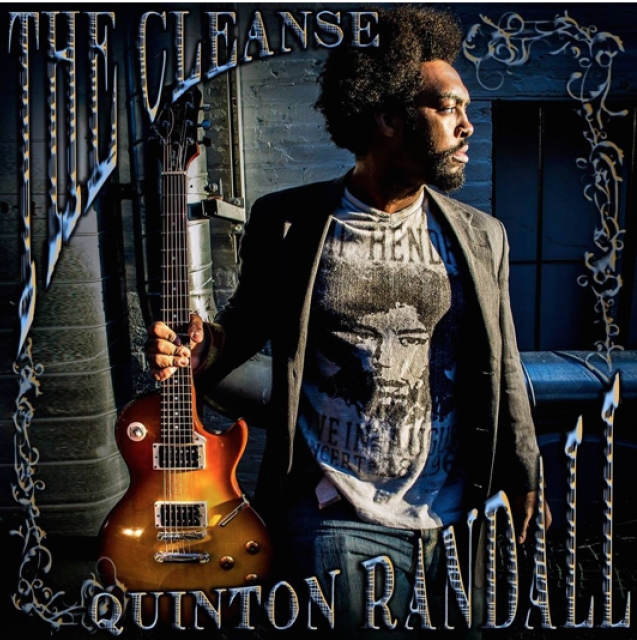
Photo: Alex Alexander
#BaltimoreBlues musician
Quinton Randall is the only young blues musician working the Baltimore circuit full-time today. He plays outside of Baltimore, too, but having grown up on the west side, where he still lives, he hopes to build the scene locally. He is 25 years old, and he didn’t graduate high school.
“I dropped out of high school mainly because of work,” Randall says. A self-proclaimed work-a-holic, he started working at 14 years old. By his 11th and 12th grade years, he was making good money in a restaurant. It started off with work release, taking part of the school day off to pick up shifts. But his grades started to slip, so eventually he took an opportunity to work full-time instead of graduating his senior year. “I chose work over school,” he says.
Randall recounts his high school timeline based on when he first started playing guitar. “Everything is tied to that,” he says. “I was sixteen.” He explains that between his job and learning the guitar, his work ethic and discipline helped him become successful at a young age. “My character and how I carry myself started to translate more to the forefront when I started playing guitar because of how focused you have to be,” he says.
Blues guitarist, Kevin Robinson, served as Randall’s music mentor during his formative years. Randall appreciates how humble his mentor was, despite his success. “He’s not one of those who talks about it,” he says, “he just does it.” The two met when Randall was getting into spoken word poetry. Randall wanted a recording of his work, and while they were in the studio, his mentor always had his guitar out. “I asked him, ‘If I bought a guitar, would you teach me?’ and he said, ‘yea.’” That month Randall bought a guitar and an amp at a pawn shop and started to study under his mentor. “He taught me the basics for a year,” he says, “and after that, I had to learn on my own.”
Randall now plays with his band, Quinton Randall and The Cleanse, regularly, and occasionally as a solo act. Despite having formed the band less than a year ago, the group has played festivals and large sized clubs, but he will still take the free Circulator bus down to the Inner Harbor on weekends to busk, just the same. In addition to playing out, this past year, he taught guitar in an elementary school twice a week. He hopes to continue that kind of educational work, as well as private instruction. He will be releasing a pop-up, double length solo album this fall, featuring original music and covers.
Despite being successful with the path he chose, Randall wouldn’t recommend that other students dropout of high school. “The reason I wouldn’t, is because…even though where I’m at, and how I feel, is a good place,” he says, “It ain’t been easy. I’m one of those guys who had to learn the hard way for experience purposes. I don’t know why. It’s just me. But if people are in school already, and they going for a degree? Go for it. At the end of the day, whatever job you got, I just hope that you are doing something that you love to do. Granted, sometimes you have to go through the motions and get jobs that pay bills, but if you have the chance to do [what you love], then I strongly advise that you do it.”
NICOLETTE LEFAYE
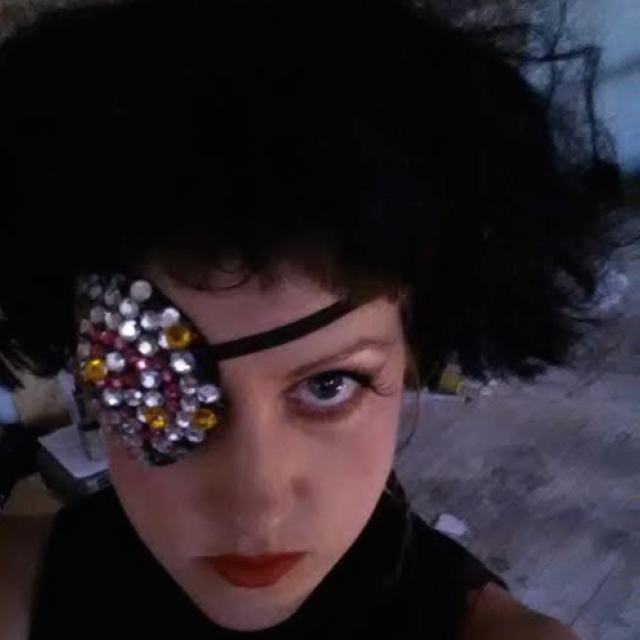
Performer (Actress, Aerialist, Contemporary Dancer), Costume Designer
“I’m generally just a creative person,” Nicolette LeFaye says. She has acted in a number of B-movies and Baltimore DIY theater projects, while performing frequently as an aerialist and contemporary dancer in and around Baltimore. She is also an accomplished costume and clothing designer.
“I turned sixteen on a Sunday and was not in school the next morning,” Lefaye says. “I officially withdrew a few days later. I didn’t finish 10th grade, so technically I have a 9th-grade education.” She took and passed her GED exam at the first opportunity she could before her peers started 11th grade. “In Maryland, if you pass the test, you receive a High School Diploma just like everyone else,” she says. “Mine happened to be a computer printout with perforated edges that I had to tear off, and I wasn’t wearing a sweaty polyester robe when I got it, but it’s actually the exact same thing my brother received when he graduated traditionally two years before me.”
LeFaye says she did not have an easy time in public school from second grade on, when she switched schools. Childhood trauma took a toll on her social skills and her grades suffered as a result. She was bullied by verbally abusive teachers and some of her classmates who decided she didn’t belong. “It snowballed as the years went on, and being a creative person with Attention Deficit Disorder and stunted social development didn’t help anything,” she says. “I was very, very depressed. I wasn’t a square peg. I was more like a damn octagon.”
Her decision to leave school was not a particularly difficult one. “All of my panic, social stress, and depression stemmed from school, which I was failing anyway due to my horrendous attention problem/boredom,” she says. Her parents took some convincing initially but ultimately supported her decision. Some of her friends felt differently, however. “I definitely had friends who told me I was sentencing myself to a lifetime at McDonald’s, but I knew that was untrue and there really was no one who could sway me.”
Once LeFaye was in an environment outside of school, she opened up. “[I felt] tremendous relief,” she says. “I spent my time in dance classes, worked part time and began performing in local DIY horror/sci-fi themed musicals, which ultimately led to my film career. The summer after I left school is full of the best memories of my adolescence. I danced all day, attended rehearsals at night, and had a new set of friends who not only tolerated who I was, but actually LIKED me for it. I was in an environment for the first time that enabled me to develop as a person and figure out who I wanted to be.”
LeFaye is looking at a stack of creative work in 2015. Between performing in a production of Jean Genet’s “The Maids” later this month, and an upcoming role in the film, What Happens Next Will Scare You — her 10th feature film — she has at least two other films being released this year.
MILES GANNETT
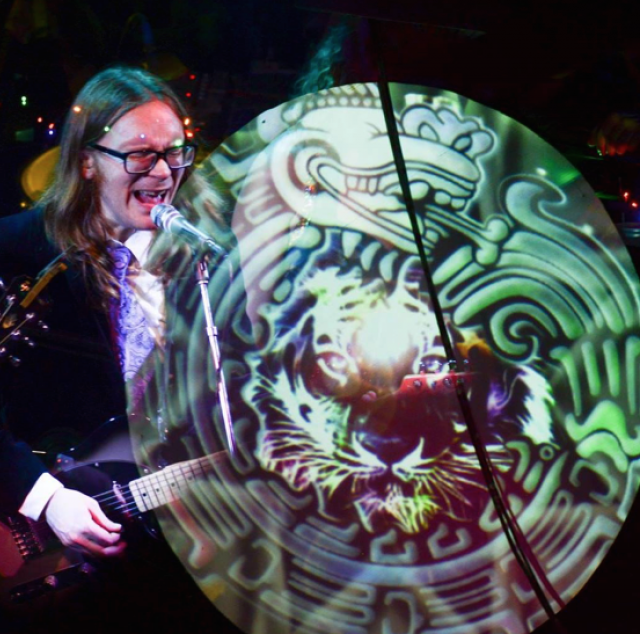
Photo: Philip Edward Laubner
Songwriter, Musician, Yoga Practitioner
Miles Gannett is a musician, songwriter and yoga practitioner. He dropped out of public high school at 15 years old and officially withdrew when he was 16. He took and passed his GED exam in his early twenties. He didn’t feel he could learn in the traditional school environment. “I never had a very good experience with public school, but high school was particularly difficult for me,” he says. “I had a lot of social anxiety, and I remember having frequent panic attacks when I was there.” He was bored during classes and got behind on his homework. One teacher had him tested for autism, but they found instead that he should have been placed in higher level classes. But even still, that adjustment wasn’t enough to keep him in school.
“I really believe that the public school system is not suited to everyone’s learning needs,” Gannet says. “I was much better at learning things on my own. And I got so much happier once I was out of school. I was able to devote myself to music, which thankfully my parents supported.” His parents did encourage him to eventually attend college, and now, in his early 30s, he is graduating Goddard College with an independent BA in music and psychedelic mysticism.
Gannett recognizes that he is privileged to have had the support of his liberal parents who believed in his intelligence, but says that the unconventional path could potentially work for others with less options, as well. “Some of my good friends, who had similar psychic make-ups as me, also dropped out,” he says. Some did not. Some of the smartest people I know dropped out.”
Gannett felt relieved shortly after dropping out of high school. “It felt like the right thing to do,” he says, “and I have never regretted it. I don’t think I really had a choice though. I just wasn’t suited for the high school experience, or at least not that particular high school experience.”
As for being a “high school dropout,” Gannett says he isn’t offended by the term: “No. I turned on and tuned in, too,” he says.
In 2015, Gannett looks forward to not only graduating Goddard College, but also recording and producing his band’s, Fractal Cat, third album, practicing yoga, eating good food, and cuddling with his cats. In addition to making music, he is a certified yoga instructor and has worked at Second Edition Books and Music in Columbia, Maryland for the last 10 years.
LAURA CASEY
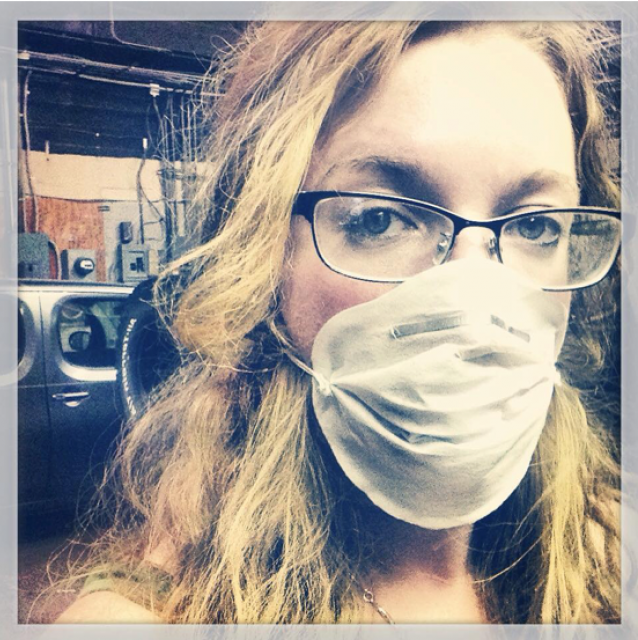
Woodworker
Laura Casey is an accomplished woodworker based in Richmond, Virginia, but has worked in the same field across the mid-Atlantic for the last 11 years. Working in a predominantly male industry, she is no stranger to choosing an unconventional path.
She attended public school before dropping out at the age of 16, with the support of her guidance counselor and mother. Shortly after, she passed her GED exam and received her diploma.
“After slipping and falling behind the school system for many years, despite my best intentions, my guidance counselor suggested that maybe I should drop out,” she says. “I think she saw that I cared, and that I was smart, but my head was somewhere else. When I came home from school that day and mentioned it to my mom, she agreed, and I filled out the paperwork the next day.”
Casey says that leaving school wasn’t a difficult decision. “I think it was the most relief I’ve ever felt,” she says. “I think my mom felt the same. I didn’t learn the way I was being taught, which I understand only now, 14 years later.” She says that when she would get behind with school work, on top of feeling that she had no options, she would disengage. So taking herself out of a system that wasn’t working felt great.
“[I’m] not sure I had any short term goals,” Casey says. “In the long run I just wanted to be happy and do things I was proud of.” Casey explains that she felt more comfortable socially when she met like-minded people. “Shortly after, I found punk and people my age who were also smart and struggled the way I did. I felt good. I didn’t feel alone.”
Although she wouldn’t necessarily recommend that others take the route she did, she is ultimately happy with the way things have turned out in her life. Dropping out of high school has never affected her career in woodworking, but she says there are alternatives to dropping out today that might benefit someone else. “I wouldn’t recommend [dropping out] because there are so many more options these days as far as schooling goes and graduating,” she says. “Going to college certainly gives you more options, but if something isn’t working and you’ve really, really tried, I believe in making a change.”
For Casey, who is in the process of buying her first home in Richmond, it’s all about looking, and moving, forward. She’s found a career that makes her happy, and she enjoys the people she works with. “After I get settled in my house, I’d like to take a class in a design program so that I can design kitchens and spaces, and not just build them, and also take some jewelry classes and focus more on making art and being productive creatively.”

As for me, it took a while, but I eventually got to the circus. I drove from Baltimore to San Francisco the following fall and officially joined the street theatre circus. I didn’t stay very long — it wasn’t for me. But I learned a ton about myself in the “getting there.” I learned even more about money and responsibility along the way.
I was lucky — my family was supportive. My mom picked up more than one desperate call along the way and wired me cash to keep me on track. I slept in a circus tent in a parking lot in the Mission district. I slept in my car at a truck stop. I ate lots of cans of tuna and rice crackers. I met some people I will never forget. And I guess most importantly, I learned how to create a life worth writing about.
This story is part of our College Month series.
Rachel Anne Warren is a Baltimore based writer and musician. She is working on the second draft of her forthcoming/debut/full length memoir about the time she ran away to join the circus.
Lockers Photo: PROClemens v. Vogelsang
Support The Billfold
The Billfold continues to exist thanks to support from our readers. Help us continue to do our work by making a monthly pledge on Patreon or a one-time-only contribution through PayPal.
Comments